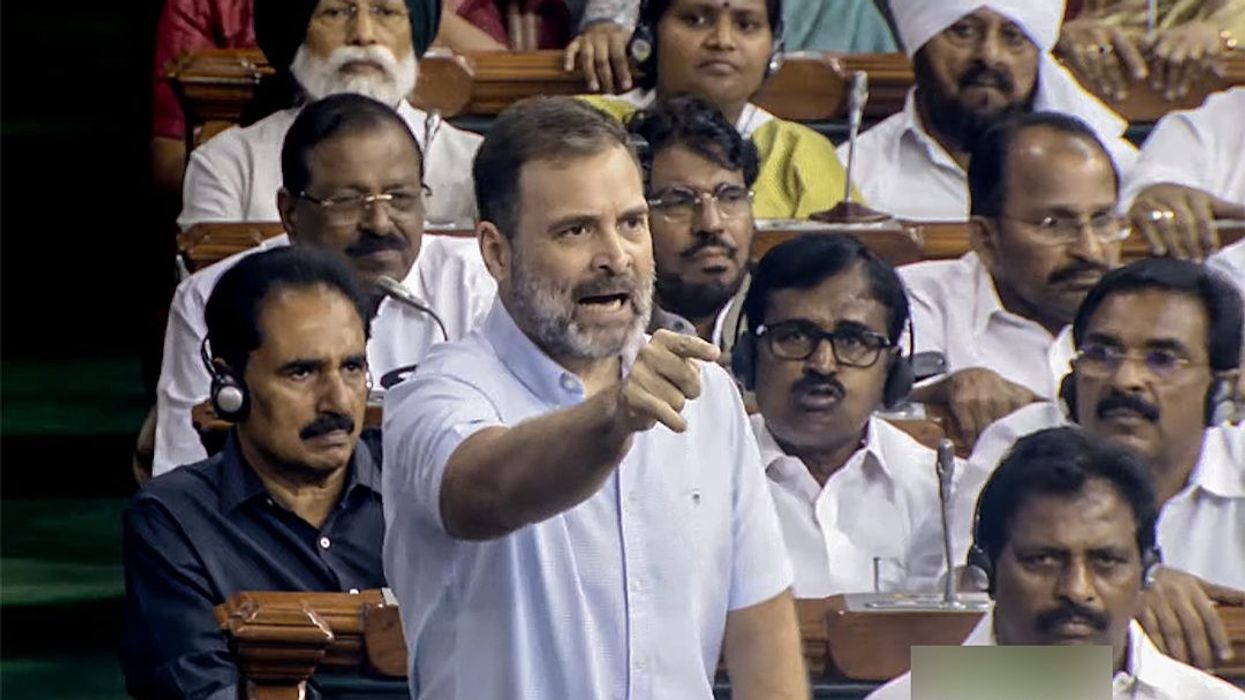INDIA's opposition leader Rahul Gandhi condemned prime minister Narendra Modi's inaction over deadly ethnic conflict in the country's northeast on Wednesday (9), in his first parliamentary speech since his defamation conviction was suspended.
Modi's administration is being forced this week to defend its conduct over months of violence in Manipur state that has killed at least 120 people.
Gandhi's fiery address to the chamber was part of a no-confidence debate demanding the government's resignation for letting the unrest fester for months.
"You are throwing kerosene in the whole country. You threw kerosene in Manipur, and lit a spark," Gandhi said, with cheers from supporters and jeers from rival lawmakers.
"You're set on burning the whole country. You are killing Mother India", he added.
Modi's Hindu-nationalist Bharatiya Janata Party (BJP) is regularly accused by opponents of fomenting divisions for electoral purposes, and India will hold general elections early next year.
The ruling BJP has a large majority in the 543-member lower house, and is expected to comfortably defeat the no-confidence vote, which it has dismissed as a headline-grabbing gimmick.
"India's army can bring in peace in one day but you're not using it," Gandhi told fellow lawmakers.
"If Modi doesn't listen to the voice of India, then whose voice does he listen to?"
Soldiers have been rushed in from other parts of India to contain the violence and a curfew and internet shutdown remain in force across most of the state.
Government minister Smriti Irani refuted Gandhi's allegations, saying the party was always ready to discuss the Manipur issue in parliament.
"They ran away from the discussion, not us," Irani said.
"Rahul Gandhi said kerosene has been poured all over the country. And where all did you go to find the matchbox, Rahul Gandhi?" she added.
Gandhi, 53, the scion of India's premier political dynasty, was restored to parliament on Monday (7) after the Supreme Court last week suspended his defamation conviction over comments criticising Modi.
He was sentenced to two years' imprisonment in March in a case that critics flagged as an effort to stifle political opposition in the world's largest democracy.
Gandhi is the son, grandson and great-grandson of three former prime ministers, beginning with independence leader Jawaharlal Nehru.
Congress was once India's dominant political force but Gandhi has led it to two landslide defeats against the BJP and its nationalistic appeals to the country's Hindu majority.
Gandhi and his allies are attempting to stitch together a grand coalition of opposition parties ahead of next year's national elections, in which Modi will seek a third successive term.
At least 120 people have been killed in Manipur since May in armed clashes between the predominantly Hindu Meitei majority and the mainly Christian Kuki community.
The state has fractured on ethnic lines, with rival militias setting up blockades to keep out members of the opposing community.
Gandhi accused the government of having "broken" Manipur "into two parts", but Irani responded by insisting the state was "not divided".
Modi has been criticised by opponents for taking more than two months to speak about the conflict from when clashes began.
The no-confidence debate is scheduled to conclude on Thursday (10) after a speech by the prime minister.
(AFP)





